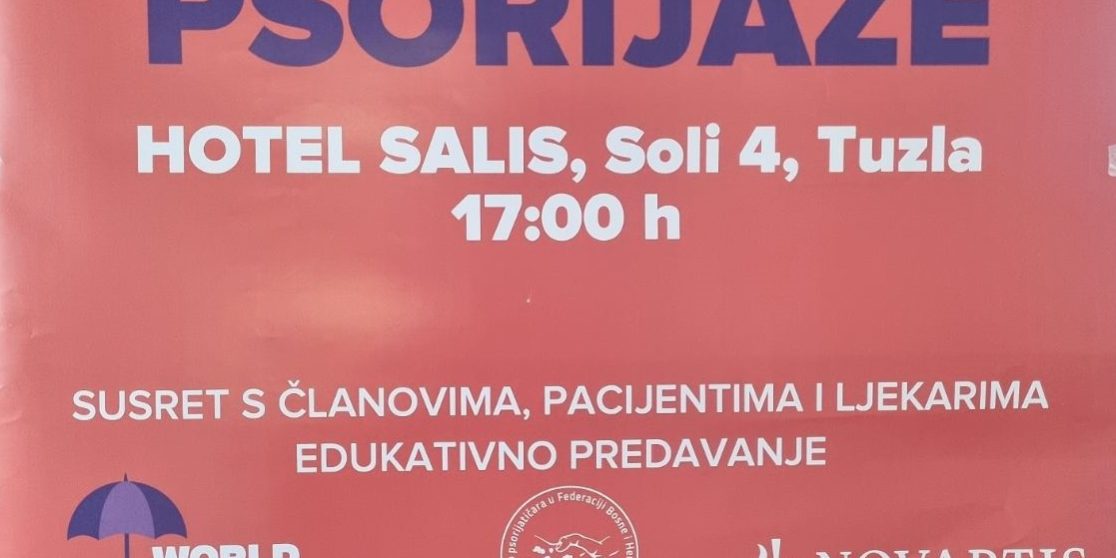World Psoriasis Day, observed annually on October 29, aims to raise public awareness of psoriasis and psoriatic arthritis. Psoriasis is a common, chronic, non-infectious inflammatory skin condition with an unknown exact cause, affecting 2 to 3% of the global population. Currently, there is no national registry of psoriasis patients in Bosnia and Herzegovina. Today, psoriasis is understood as a systemic condition, impacting not only the skin but often involving associated health issues. Diagnosis is typically clinical, confirmed as needed through skin biopsy. While certain genetic factors may contribute to its development, the precise cause remains undetermined.
“Psoriasis is a multifactorial disease resulting from interactions between genetic and environmental factors, such as infections, psychological stress, and certain medications,” explained Assoc. Prof. Dr. Senada Resić Džananović, Head of the Clinic for Skin Diseases. “The condition is inherited polygenically, and we distinguish two main types based on clinical presentation: pustular psoriasis and the more common plaque psoriasis (psoriasis vulgaris). Additionally, 30 to 40% of psoriasis patients are affected by psoriatic arthritis, and the incidence of Crohn’s disease in psoriasis patients is 3.8 to 7.5 times higher compared to the general population.”
Psoriasis typically starts with one or more small psoriatic plaques that develop excessive scaling, commonly affecting areas like the scalp, elbows, knees, back, and buttocks. Other areas, including the eyebrows, armpits, navel, and groin, may also be involved. According to Assoc. Prof. Dr. Resić Džananović, treatment for psoriasis patients includes local and systemic therapies, often combined with phototherapy for optimal results.
“For mild psoriasis, we use local therapy, while systemic treatments include phototherapy, photochemotherapy, ciclosporin, methotrexate, retinoids, biological therapies, and biosimilars,” noted Assoc. Prof. Dr. Resić Džananović. “Biological therapy has been available at our clinic since 2019, with ten patients currently following this therapeutic protocol. These patients have shown an excellent therapeutic response, with significant improvements in their quality of life index.”
In celebrating World Psoriasis Day, the medical community aims to raise awareness of psoriasis and psoriatic arthritis, advocating for improved quality of care for patients while also highlighting the stigma they often face.
In line with these efforts, the Clinic for Skin Diseases, supported by the management of the University Clinical Center Tuzla and in collaboration with the Psoriasis Association of FBiH, will organize a series of professional lectures for members, patients, and healthcare providers in recognition of World Psoriasis Day. The lectures will take place on October 29, 2024, at Hotel Salis in Tuzla, starting at 5:00 p.m.







